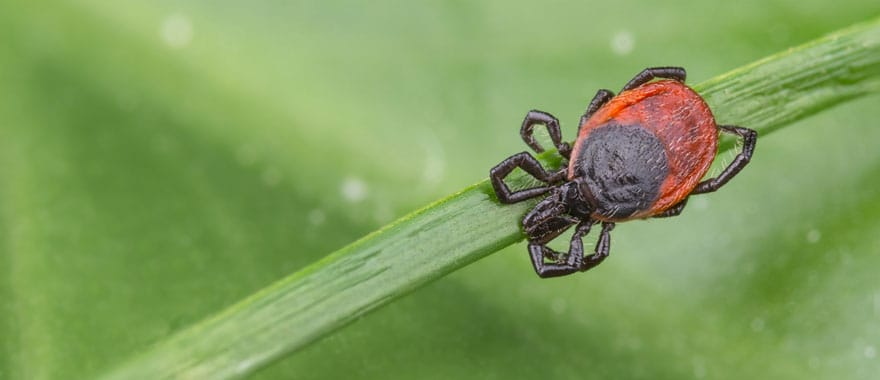
Facts About Ticks
Deer ticks, or black-legged ticks, are a fact of life here in Danbury, CT, and surrounding areas. While we often think of ticks being found in wooded areas, they're also present in even the most perfectly manicured yard - even if you can't see them.
Many ticks are carried by deer, so as deer populations continue to increase so do the number of ticks. (If you're worried about deer damage to your yard, here are some tips to keep them away.)
Ticks are also carried by rodents, such as woodchucks, squirrels, white-footed mice, and voles, as well as on you and your pets.
The biggest worry with black-legged ticks is that they can transmit debilitating diseases, such as Lyme disease, as well as Babesiosis and Borrelia miyamotoi, both of which cause symptoms similar to Lyme disease.
Tick Control Options
While there are some DIY or consumer-grade tick control options, the best results are achieved through professional tick control applications.
We offer both organic and low concentration synthetic pesticide applications to help eliminate ticks from your property.
These insecticides are applied where ticks are most likely to be found -
- where the wood line meets the lawn,
- on perennial beds,
- in shaded areas and
- alongside trails and paths.
To minimize the impact on beneficial insect populations, we focus our applications on specific tick habitats. We use high-pressure sprayers so the tick control pesticide penetrates into leaf litter, crevices, ground covers, woodpiles and other areas where ticks hide.
Timing for Effective Tick Control
Most Lyme infections occur in spring, which is why it's critical to start your tick control program in spring. We typically apply tick control treatments every 6 weeks or so, starting in April.
The first visit in our tick control program takes place in April, with the goal of disrupting the egg-laying process among the adult ticks that have started to emerge and reducing the overall population.
Subsequent tick control visits suppress ticks at the larval, nymph and adult growth stages, cutting down the total number of ticks and controlling adults before they have a chance to safely hide for the winter.
If you're considering a tick control program, give us a call or request a quote before spring arrives for the best results.


